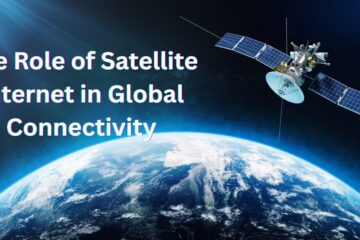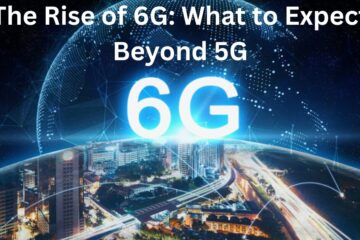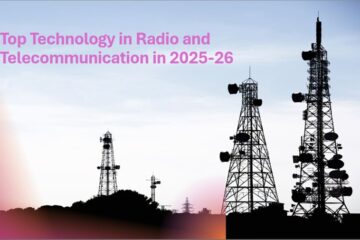The advent of 5G technology has ushered in a new era of connectivity, promising faster data speeds, lower latency, and many opportunities for innovation across various sectors. While the benefits of 5G are well-documented, there are concerns and questions regarding its environmental impact, surveillance capabilities, enhancement of the Internet of Things (IoT), and its role in revolutionizing transportation. This article explores the multifaceted dimensions of 5G technology and its implications.
Read More: https://www.srfsteleinfra.in/5g-vs-4g-whats-the-difference-between-them/
Is 5G Safe for the Environment?
The environmental impact of 5G technology has been a topic of debate and concern. Here, we delve into the key aspects:
Energy Efficiency:
5G technology is designed to be more energy-efficient than its predecessors, such as 4G. The smaller and denser cell infrastructure allows for lower power consumption in transmitting data. This energy efficiency can lead to a reduction in the carbon footprint of wireless networks.
E-Waste:
With the proliferation of new 5G devices and infrastructure, there is a growing concern about electronic waste. The rapid turnover of smartphones and other connected devices can contribute to e-waste, highlighting the need for proper recycling and disposal practices.
Radiation:
Some individuals are concerned about the potential health effects of radiofrequency (RF) radiation from 5G infrastructure. However, regulatory bodies like the FCC in the United States have established guidelines to ensure that RF exposure remains within safe limits.
5G Surveillance: Balancing Innovation and Privacy
The deployment of 5G networks has implications for surveillance and data privacy. Here are some key considerations:
Enhanced Surveillance:
The high data speeds and low latency of 5G technology enable the use of advanced surveillance systems, including facial recognition and real-time video monitoring. This has raised questions about privacy and civil liberties.
Regulation and Ethics:
Policymakers and regulatory bodies are grappling with balancing leveraging 5G for public safety and respecting individual privacy rights. Establishing clear regulations and ethical guidelines is crucial in navigating this landscape.
How Does 5G Technology Enhance the Internet of Things (IoT).
5G technology is a game-changer for the IoT. Its impact on IoT is profound and can be summarized as follows:
Low Latency:
5G’s ultra-low latency is a game-changer for IoT applications that demand real-time responses. This is essential for autonomous vehicles, telemedicine, and industrial automation.
Massive Connectivity:
5G networks can support a massive number of connected devices simultaneously. This is a critical requirement for developing IoT devices in smart cities, smart homes, and industrial IoT.
High Data Throughput:
IoT applications that require high-resolution video streaming, such as security cameras and drones, benefit from 5G’s high data throughput capabilities.
Read More: https://www.srfsteleinfra.in/unlocking-the-future-understanding-the-architecture-of-5g-network/
5G Transportation: Revolutionizing Mobility
5G technology is poised to revolutionize transportation in the following ways:
Connected Vehicles:
5G enables seamless communication between vehicles, infrastructure, and pedestrians. This can enhance road safety, reduce traffic congestion, and pave the way for autonomous vehicles.
Autonomous Driving:
Low latency and high data speeds are essential for the real-time decision-making processes of autonomous vehicles. 5G facilitates vehicle-to-vehicle (V2V) and vehicle-to-infrastructure (V2I) communication, making autonomous driving safer and more efficient.
Traffic Management:
5G technology allows for better traffic management through real-time data collection and analysis. This can lead to brighter traffic signals, optimized routes, and reduced emissions.
Navigating the Complex Landscape of 5G
5G technology is a transformative force that touches various aspects of our lives, from the environment and surveillance to the Internet of Things and transportation. As we embrace the possibilities offered by 5G, and it is essential to address the challenges it presents.
Balancing the environmental impact of 5G with its potential benefits requires a commitment to sustainable practices and responsible e-waste management. Surveillance capabilities should be guide by ethical considerations and stringent regulations to protect privacy. The enhancement of the Internet of Things and the revolution in transportation offer exciting opportunities but also raise questions about data security and reliability.
In this dynamic landscape, collaboration among stakeholders, including governments, industry leaders, and advocacy groups is crucial to ensure that 5G technology is harnessed for the betterment of society while safeguarding our environment and individual rights.



0 Comments